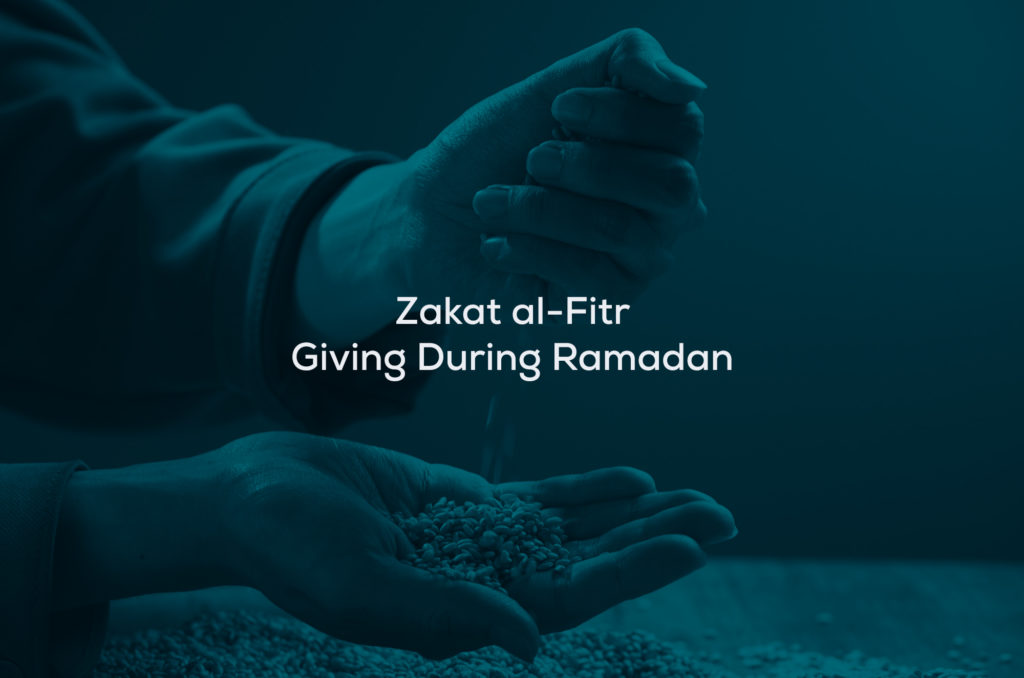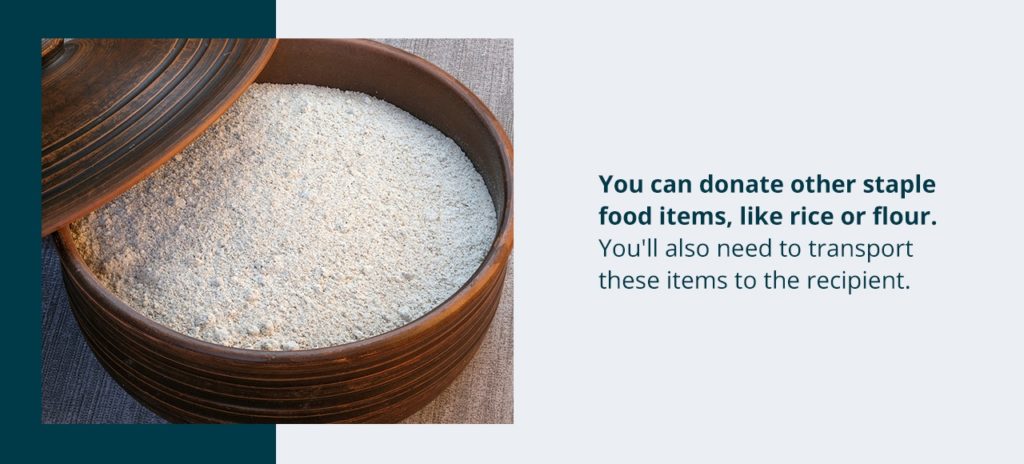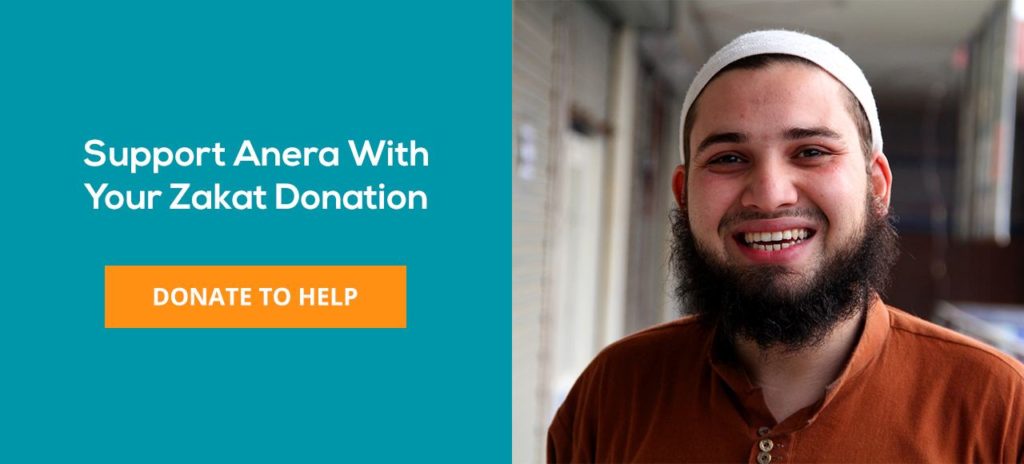Zakat al-Fitr — Giving During Ramadan
Posted in: Society & culture


One of Islam’s major pillars is zakat, or alms, through which Muslims show support for the Islamic community. At the end of Ramadan, a special type of zakat is due — Zakat al-Fitr. These obligatory alms allow Muslims to cleanse their wealth after the fasting month while giving directly to the poor and needy.
As with many elements of Islam, Zakat al-Fitr comes with a few rules. Let’s explore what Zakat al-Fitr is about and where and how much to pay for Zakat al-Fitr.
What Is Zakat al-Fitr?
Zakat al-Fitr can go by many names, including Zakat al-Fitrah, Sadaqa al-Fitr, the Zakat of Breaking the Fast of Ramadan, the Alms of Human Nature or the Human Creation. It refers to a mandatory charity that every Muslim pays at the end of Ramadan. It occurs in Sha’ban, the eighth month of the Islamic lunar calendar, in 2H or the second year of the Hijrah.
There are two primary purposes for Zakat al-Fitr:
- Spiritual: Zakat al-Fitr occurs after fasting, which is considered an impurity. Fasting aims to train the human spirit to master its physical nature. In addition to withholding food and drink, it can also include denying speech and impure thoughts or actions. Zakat al-Fitr donations occur during Ramadan as a way to cleanse the worshiper from adulterations and serve as a prerequisite for the acceptance of one’s fasting.
- Communal: Zakat al-Fitr is also a way to help the poor and needy. Giving traditionally occurs during Eid al-Fitr, alongside a communal Salah-Prayer and feast. The day of Eid is a day of prayer and gathering, allowing Muslims to gratify the poor as they close out Ramadan.
Who Needs to Pay Zakat al-Fitr?
In short, all Muslims must pay Zakat al-Fitr, including children and married and unmarried women.
In many cases, one person pays on behalf of another, such as a father paying for his wife and child. Orphans are generally exempt from Zakat al-Fitr and, although unborn children are typically excluded, some Islamic schools encourage it. Some of these schools differ in how they read Zakat al-Fitr and require Muslim women to pay from their own wealth, while others require husbands to pay on behalf of them.
Still, this universal obligation is generally considered compulsory by all. As long as someone has wealth beyond the necessities, such as food, shelter and clothing, they must pay Zakat al-Fitr.
Who Can Receive Zakat al-Fitr?
In the broadest sense, Zakat al-Fitr goes to poor Muslims who can receive payments from multiple givers. You cannot give Zakat al-Fitr to someone you’re already responsible for, such as a wife, child or parent.
Some schools of Islamic law say Zakat al-Fitr is only for the poor and needy, but others give to those who fall under any of the eight zakat categories, which include:
- The poor
- The needy
- Stranded and needy travelers, such as refugees
- Those in slavery or captivity, including trafficking victims
- Those in heavy debt
- The cause of Allah
- New Muslims and friends of the community
In general, zakat can also go toward administrative costs, but not education or infrastructure, so it cannot be used to build a mosque or donate to an Islamic school. Zakat al-Fitr specifically focuses on direct assistance to individuals, so many organizations don’t put zakat offerings toward administration. Here at Anera, we do not use zakat donations for administrative costs.
Regarding where to pay Zakat al-Fitr donations, you can give directly to the needy or donate to a non-profit that uses zakat donations accordingly. Anera only uses zakat donations for direct assistance to Palestinian and Syrian refugees. We work on the ground to help these poor and needy travelers, only using zakat according to the principles of these alms.
How Is Zakat al-Fitr Calculated?


Originally, Zakat al-Fitr donations were equivalent to one sa’a of grain, an ancient measurement that scholars have roughly interpreted as around five pounds. Grain is no longer the only option, however, as you can donate other staple food items, like rice or flour. You’ll also need to transport these items to the recipient.
While it hasn’t always been permissible, many contemporary scholars now allow you to donate the equivalent value of those food items in cash. This value will change according to the cost of the staple foods in your area. In 2021, for example, the Imam Mahdi Association of Marjaeya (IMAM) calculated the value of Zakat al-Fitr to $10 per person in the United States. How much you pay during Zakat al-Fitr is only limited by your ability, and many people choose to donate more than the minimum to further help the Islamic community.
What Is Zakat in Ramadan?
Zakat al-Fitr calculations are different from zakat donations, which usually refer to donations for Zakat al-Mal. Zakat al-Mal comes from Muslims with a certain amount of wealth, who must give away 2.5% of their liquid assets to charity every year. Zakat al-Mal applies to currency, gold, silver and property and is only a requirement if you meet a threshold called nisab.
When Do You Give Zakat al-Fitr?
In modern days, Zakat al-Fitr is often given during Ramadan so it can be distributed on the day of Eid. Different schools of Islamic law specify various times when Zakat al-Fitr is due, but many say the latest you should pay is before the Eid al-Fitr prayers. They occur on the first morning of the month following Ramadan. Many scholars say donations are due at sunset on the last fasting day of Ramadan, while others allow payment at any time during Ramadan, in the days before Eid al-Fitr or even at the beginning of the year with Zakat al-Mal.
Whenever it is paid, the idea is that Zakat al-Fitr is distributed in time for the poor to enjoy and partake in the day of Eid. Modern donation practices mean it is often easier to give donations before the day of Eid, so many Muslims give throughout Ramadan.
Support Anera With Your Zakat Donation
Although Anera does not have any religious or political affiliations, our humanitarian aid programs can fulfill faith-based charitable giving requirements. We work on the ground in Palestine, Lebanon and Jordan, helping refugees and vulnerable communities find emergency relief and resources. We only use Zakat donations for direct assistance providing food packages, necessary medicines, hygiene kits, medical supplies and other essentials to those who need them, so you can be confident that your donation fulfills the criteria for Zakat al-Fitr.
This Ramadan, use your zakat to help Palestinian and Syrian refugees by donating to Anera.

